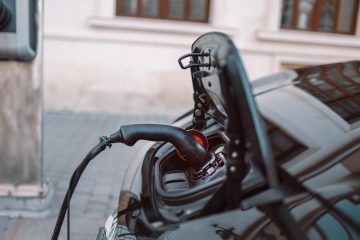Polestar has presented new research findings that reveals strong consumer demand for legislation towards a faster switch to electric vehicles (EVs).
The global study, involving 18,000 participants in 19 markets across North America, Asia Pacific and Europe, reveals that 34% of consumers are in favour of a ban of internal combustion engine (ICE) cars by 2030, a number that rises to 47% in a 2035 scenario, meaning a switch to EVs. The new study also finds that three-quarters of those surveyed believe society needs to consume differently to preserve the climate and the environment for future generations.
In tandem, to coincide with Climate Week NYC and European Mobility Week, Polestar follows up on its ‘Set in Stone’ film, launched during COP26. A new campaign shows how lack of climate action from the car industry turned what was supposed to be a historical document of promises into a historical document of silence.
Polestar CEO, Thomas Ingenlath, says: “As climate leaders meet this week in New York City, and with COP27 around the corner, it is clear there is climate meeting fatigue. But companies and consumers can become the antidote to that. While we don’t write the policies, we have the power to act now and drive real change. We have a responsibility, and it is up to us to send a signal and show we’re ready.”
In June 2022, the European Council of Environmental Ministers agreed that by 2035, new cars sold in the EU must be zero-emission vehicles. Similarly, at COP26 in 2021, a small number of automakers joined the ‘Glasgow Declaration on Zero Emission Cars and Vans’ – a commitment to phase out fossil fuel vehicles between 2035 and 2040.
The UK is also following this line, with all petrol and diesel only new sales halting in 2030, with hybrid and plug-in hybrids stopping new sales from 2035. By that time, only electric and hydrogen vehicles can be sold from new, meaning consumers will need to switch to EVs.
Ingenlath argues that a global ban on ICE vehicles must come sooner: “With just 1.5% of the vehicles on the road being electric today, it is clear we are living in an EV bubble, not an EV boom. This decade is the most critical we have ever faced when it comes to not overshooting the Paris agreement.
“We need governments to lead the charge with robust policies, both on infrastructure and addressing electricity prices so that drivers can confidently go electric, but more importantly, car makers must act now and not wait for policy changes.”



